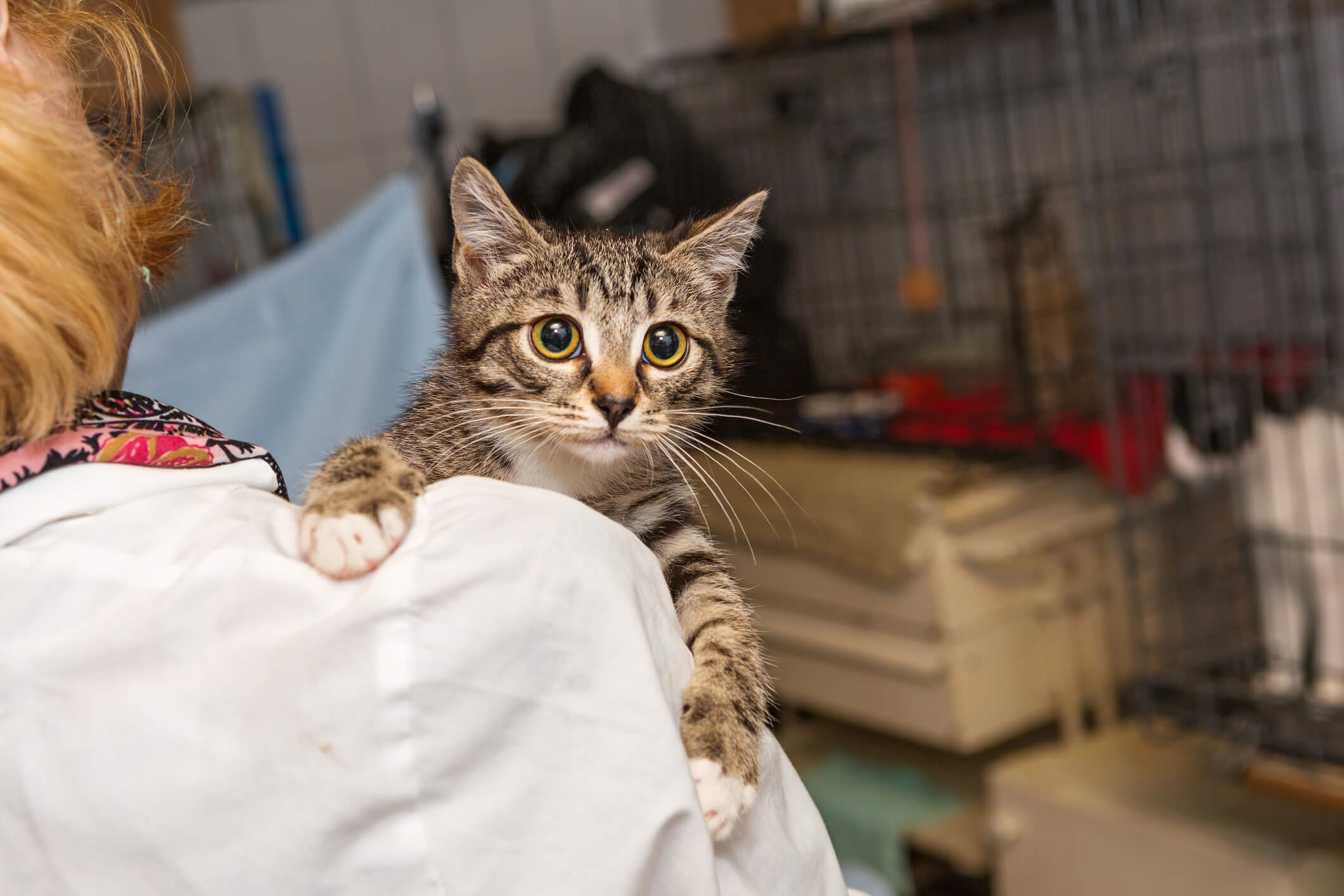
The Top 7 Health Issues that Rescue Cats Experience
The decision to bring home a rescue cat is a big one—for both you and the cat. The cat is likely coming from a place of hardship and neglect and will need to acclimate to a new life by shedding some instinctual habits, fears and reactions. You, on the other hand, will need to create an environment that makes this possible. That means taking extra steps to provide support, routine and, above all, love to your rescue cat.
Bringing home a rescue cat also means being ready to provide support for medical issues and ailments they might be experiencing. As the result of neglect, abuse or poor living conditions, many rescue cats bear the burden of chronic medical issues—or, at the very least, need a period of recuperation. You need to be ready to provide extra care and attention to help them in their transition back to full health.
Take a look at some of the most prevalent health issues that rescue cats experience and what to expect if you choose to be a forever home for a rescue feline.
- Respiratory issues: Unsanitary living conditions often result in breathing issues for cats. Many cats rescued from hoarders or off the streets suffer from respiratory issues that are the result of untreated viral or bacterial infections. While these are usually treatable, your rescue cat may suffer from lingering coughs, wheezing or difficulty breathing. This may be a temporary or persistent condition.
- Diarrhea and elimination issues: Litter box problems are very common among rescue cats and are often signs of behavioral issues, health concerns or both. Diarrhea is common among malnourished rescues that are still getting acclimated to nutritious food, as well as those on antibiotics or overcoming treatment for worms. Behavioral elimination issues can occur through marking or simply as the result of not being litter box trained.
- Apprehension and aggression: For rescue cats that have been abused, apprehension is common. Many have only known harm through their interactions with people and thus, aren’t quick to trust. Others might instinctively defend themselves by hissing, biting or scratching. Rescue agencies will work with adopting families on ways to address and overcome these issues.
- Separation anxiety: Rescue cats that form a bond with their new owner may experience severe separation anxiety. This can manifest as yowling, excessive grooming or destructive tendencies when you leave the house or anxious tendencies when they can tell you’re leaving. Behavioral therapy is often a good way to address separation anxiety concerns.
- Territorialism: Many rescues have trouble acclimating to a new home—especially when there are other pets living there. Your pets may welcome the new addition with friendly sniffs, but the rescue might still be in defense mode. Territorialism is common, which can include unwanted marking, food hording and aggression in certain areas of the home or over certain items. Usually, this is an issue that will fade with time, therapy and acclimation.
- Feline diabetes: Malnourished rescues and those left to fend for themselves over time tend to have chronic health conditions as a result. Feline diabetes is the most common. Insulin deficiencies tend to be chronic and lifelong but are easy to manage with the right diet and regular vet visits.
- FIV and FeLV: Rescue agencies often scan for FIV and FeLV before placing cats in foster and adopted homes. Cats that test positive for these conditions have many needs, and their health is generally very precarious. You’ll need to discuss this living situation at length with the rescue agency and your vet if you choose to bring home a cat with a terminal illness such as FIV or FeLV.

Every cat and their circumstances are unique. You could find yourself adopting a rescue cat that has multiple lifelong conditions to manage—or, you might end up with a healthy cat that just needs a little love while they rehabilitate. The good news is that you’ll often know ahead of time, since the rescue agency will want to make sure you’re capable of caring for that particular cat’s needs.
The good news for prospective rescue cat owners is that rescue agencies are extremely proactive in addressing the health and behavioral needs of cats. When you choose to adopt a rescue animal, you’ll have a clear understanding of the health conditions that come with them. Additionally, the agency and its affiliates will have likely done much of the legwork in terms of routine care— vaccinations, deworming, spay/neuter, bloodwork and any serious medical procedures.
It’s always important to remember that while rescue cats need more love and attention, it’s worth it. These animals have experienced hardship far beyond anything we know, and their health conditions are lingering effects of that trauma. Helping them manage and overcome these issues is all part of developing a bond of trust that shows them a new, loving way of life.


